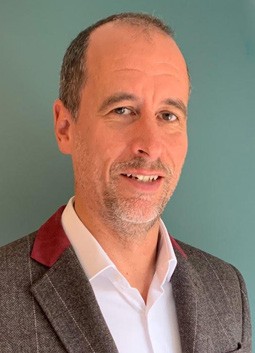Manufacturing: Digital Twins
Predictive Digital Twins Help Pharmaceutical Companies Plan
Digital twins and predictive simulation create virtual business environments to help manage change in business processes, from manufacturing layouts, the selection and sourcing of materials, line management of staff and processes, to the reconfiguration of supply chain and logistics
Oliver Bird at Lanner
Supply chain disruption, labour shortages, rising demand, and spiralling costs have all played havoc with the global industry in recent times. Brexit, COVID-19, inflation, and rocketing energy prices – along with shipping bottlenecks and the UK’s shortage of lorry drivers – have all conspired to create a ‘perfect storm’, which shows no sign of abating.
Companies are becoming aware that they must become more agile to survive such volatile market conditions. Decisions need to be properly informed, based on data and facts. But, without a crystal ball to foretell the next turn of events, it may seem impossible to plan.
However, combining existing data with predictive simulation technology allows pharmaceutical companies to get ahead of the game and prepare for all eventualities
Smarter Business Decisions
Static modelling has helped many pharma businesses achieve increased profits and improved efficiency, while responding to changing demand. However, with digital twins and predictive simulation software, companies can model all stages of the production process and operations more easily to provide unprecedented insights.
Being able to test and make assumptions and decisions in a virtual, risk-free world can provide clarity across areas such as capital investments, resource planning, process design, and even service policies. It enables important business decisions to be reached quickly, without impacting production or supply chain delivery.
Digital twins and predictive simulation offer answers to the most fundamental or innovative ‘what if?’ questions. They allow smarter business decisions, with little risk. Digital twins can provide crucial insights into how to mitigate risk and operate businesses most effectively and efficiently.
For the pharmaceutical industry, this can be seen in:
- Capital investments: Through accurate modelling of proposed new capabilities/capacities, costs can be justified or avoided
- Operating costs and inventory: Through accurate modelling of the subtle, and often complex, interactions between equipment utilisation, labour, product mix, demand variability, and materials, the right balance of performance and costs can streamline inventory and reduce operating costs
- Delivery performance assurance: More effective use of existing assets, lower cost to serve, and better plan adherence through accurate modelling of capability and capacity impacts of product and plant transfers
- Responsiveness to market and revenue potential: Assisting NPI through accurate assessment of existing capacity and operations, whether at plant, value chain, or network strategy level
“Digital twins and predictive simulation offer answers to the most fundamental or innovative ‘what if?’ questions”
Finding Clarity and Certainty
Clearly, this cutting-edge technology can help pharma companies respond rapidly to a constantly changing operating environment during uncertain times. So, as businesses seek to navigate ‘perfect storms’, digital twins may offer some clarity and certainty. Ultimately, such technology should enable sounder decision making, which maximises return on investment and provides some degree of futureproofing.
Reference
1. Visit: www.lanner.com/en-gb/technology/ witness-simulation-software

Oliver Bird is the Business Development Director at Lanner. He has over 25 years’ experience in helping organisations to make smart, optimised Capex/Opex decisions. He has supported numerous customers across multiple sectors to realise significant improvements in their business performance. Lanner is a predictive simulation and digital twin provider within the digital business line of Royal HaskoningDHV, a leading global engineering services provider.
Case Study: Tuberculosis Treatments in the Philippines
Lanner took part in a pioneering, three-year research programme designed to tackle escalating tuberculosis (TB) rates in the Philippines, working in partnership with the Liverpool School of Tropical Medicine.
The project came about after a study published in 2016 revealed that there were 1 million people in the Philippines with active TB, a figure which is reportedly rising.
Using detailed process mapping and mathematical logic, developed using Lanner’s simulation software platform, WITNESS, real-life scenarios were modelled, allowing Da La Salle Medical and Health Sciences Institute (DLSMHSI) in the Philippines and the Liverpool School of Tropical Medicine to analyse the impacts of new diagnostic tests for TB (1).
The WITNESS model simulated 10 years of real-time diagnoses and compared many elements of the operational and financial outcomes, particularly considering the innovative GeneXpert test, which introduced additional costs along with its efficiencies.
Through a collaboration with colleagues at DLSMHSI, the Liverpool School of Tropical Medicine secured funding from the UK Medical Research Council and the Philippine Coalition of Health Research and Development to explore the different diagnostic options for GeneXpert using WITNESS.
Professor Charles Yu, the Principal Investigator in the Philippines reflected: “The WITNESS model provided us with many of the key insights we needed to inform decisions relating to rolling out the new technology, including the number of patients who could be correctly diagnosed with TB (true positives), those who would be missed (false negatives), and those who don’t have TB and would nevertheless be placed on to treatment (false positives). WITNESS enabled us to not just calculate the benefits of implementing GeneXpert, it also enabled us to measure and analyse patient impact.”
The Liverpool School of Tropical Medicine has been modelling with WITNESS for over 10 years, working in many countries, including Brazil, South Africa, Ethiopia, and Tanzania. It has also modelled scenarios focused on important health issues, such as sepsis, child and maternal health, and emergency care.
The team’s modelling in the Philippines predicts that full rollout of GeneXpert will see more patients correctly diagnosed, with patients having lower costs and a faster time to diagnosis. It also projects increased numbers of multi-drug-resistant TB (MDR-TB) cases receiving appropriate treatment, which is vital for progress towards ending TB, in line with WHO’s goals.
